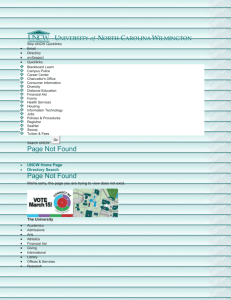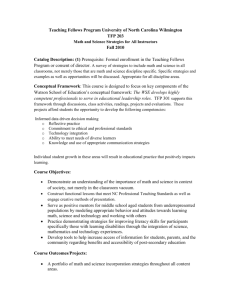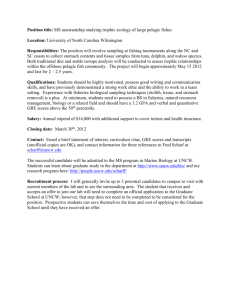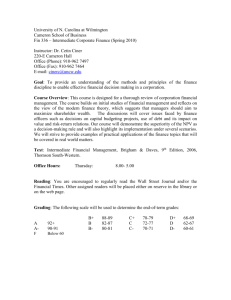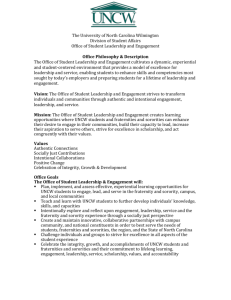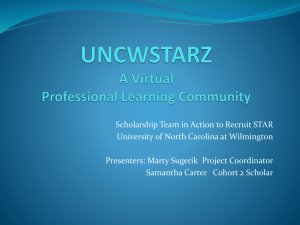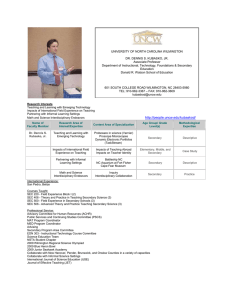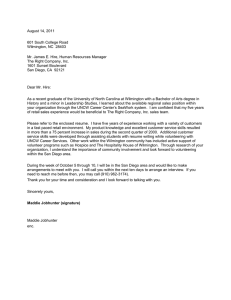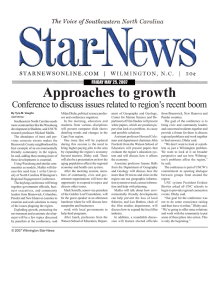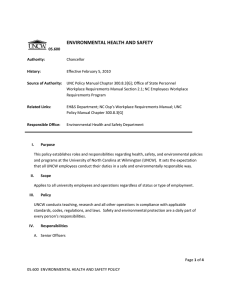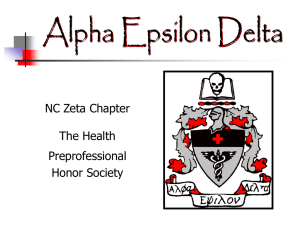File - Safer Schools Task Force
advertisement
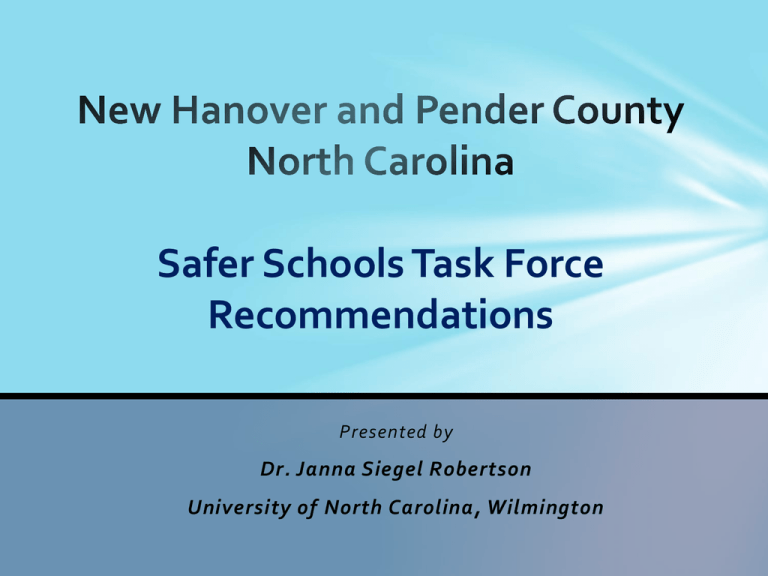
Safer Schools Task Force Recommendations Presented by Dr. Janna Siegel Robertson University of North Carolina, Wilmington Framework for Successful Schools Representatives from the national associations of school principals, guidance counselors, psychologists, social workers, and resource officers. (2013) • • • • • • • • Strong leadership/ flexibility resource allocation Team-based facilitation Physical and psychological safety Trained mental health and safety personnel Ongoing professional development Multi-tiered system Partner with families and community Purpose: Teaching and learning http://www.nasponline.org/resources/handouts/Framework_for_Safe_and_Successful_School_Environments N.C. Center for Safer Schools Report to the Governor • Referred to the National Framework • National and state reports recommend that a local collaborative should make own community/district implementation decisions • Emerging theme: Importance of relationships https://www.ncdps.gov/div/JJ/CenterForSaferSchoolsReport2013-web(1).pdf Report Organization • Personnel • Programs • Process • Physical Personnel Recommendations • Safer Schools Leadership • Adequate Personnel and Appropriate Caseloads • School Psychologists, Counselors, Social Workers, Nurses, Teachers, Principals • School Resource Officers (SROs) • Adults in the Schools • Preparation and Training • Parent/Family/Student Collaboration and Training Program Recommendations • School Climate and Behavior Management Systems • Health Services • Evidenced Based Programs • Targeted and Intensive Supports Process Recommendations • Implement Multi-tiered Systems of Supports (MTSS) Successful MTSS requires: • Adequate resources • Trained appropriate numbers of faculty/staff • Good transitioning between tiers • Address social, emotional, academic services and supports • Reentry Transition Process • Fostering Relationships Task Force Formal Endorsements of Current Initiatives • Guidance Standards • Physical Plant Recommendations • School Volunteer Procedures • Judge Teske: Breaking Schoolhouse to Jailhouse Pipeline • Teen Court • Comprehensive Safety Awareness Training Conclusions: Relationships Bill Milliken’s Five Basics for Communities in Schools are: • • • • • A one on one relationship with a caring adult A safe place to learn and grow A healthy start and a healthy future A marketable skill to use upon graduation A chance to give back to peers and community A young man who brought a rifle into school, killing two students and wounding several others, told us from his prison cell: “I was really hurting. I didn’t have anyone to talk to. They just didn’t care.” • Andy Atkinson Community Facilitator • Tom Barth MPA Faculty Facilitator, UNCW • Donald Berger Headmaster, Cape Fear Academy • Larry Bonney Retired FBI Special Agent, former Director in the National Center for Missing and Exploited Children • Kenneth Bowen Chief Officer for Student Learning & Accountability, Pender County Schools • Terri Cobb Superintendent, Pender County Schools • J. Corpening Chief District Court Judge • David Hand Social Worker, Laney High School • Stephanie Kraybill Past President, PTA • Warren Lee Director, New Hanover County Emergency Management • Beth Looney MPA Graduate Assistant, UNCW • Wanda Marino NHC Department of Social Services Assistant Director • Barren Nobles Lead Administrator, Wilmington Christian Academy • Deloris Rhodes Outreach Liaison, UNCW Watson College of Education • Janna Robertson Faculty Researcher, UNCW Watson College of Education • Bob Speight Chief Court Counselor - 5th District • Dave Spencer Safety Director, New Hanover County Schools • Judy Stubblefield Behavior Support Specialist, New Hanover County Schools • Amy Valimont Director of Integrated Care, Wilmington Health Access for Teens • Samantha Williams MPA Graduate Assistant, UNCW Safer Schools Task Force Members

